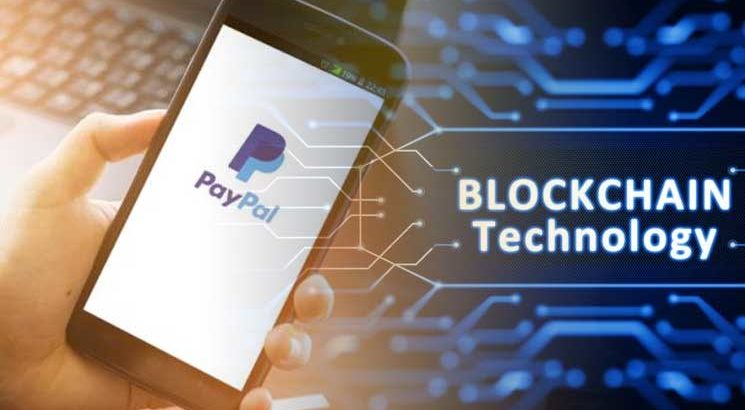Blockchain and the Future of PayPal
The instant gratification of today’s modern world fits perfectly with blockchain’s new style of instant paying. But what about PayPal? It has been the dominant way of making digital payments for the better part of two decades. With this hegemony in mind, is there room in this new modern era for the company or is it going the way of other older tech- in other words, can it adapt and survive?
The generation-defining new tech that is blockchain has only just begun to show us its many application possibilities in our world. It is said that it may be as an important an invention of the internet, the microprocessor, and the smartphone itself. The DLT (Distributed Ledger Technology) blockchain offers a new world of decentralization in the infrastructure of all data-driven functions, personal and public.
PayPal deserves its own credit for paving the way in fast and expansive e-commerce growth, with its alternative to more traditional bank wiring services such as Western Union. This change could also be credited with wearing down reliance on cash by making consumers and businesses comfortable with the idea of electronic money. The 90s was all about cash transactions, but now? The average person feels positively naked without a debit card on them at all times.
In a weird way, it may even have paved the way for trusting cryptocurrency and the blockchain tech it relies on.
The Pros and the Cons
Like anything, there are pros and cons to both. PayPal allows anyone to send money digitally in 26 flat currencies, as long as they have a PayPal account of their own (tied to an email address and bank account, of course). The regulations it does fall under also provides a certain measure of protection to the users, more so if you’re paying with credit card than debit or PayPal cash balances. It also does all of this in 30 minutes or less.
There is a flat 2.9 percent fee and 30 cent per transaction fee on the part of a seller but not buyer. However, this can be avoided using their eCheck option (similar to ACH traditional bank transactions) but the money does take a few extra days to get where it’s going and the company even makes interest on that money during the hold. You also have to plan for currency conversion rates which are determined by PayPal and there is a $10,000 transaction limit with no exceptions.
Blockchain, because of its ledger, has a completely different paradigm. Payments do not require institutional approval of any kind and have no limit on the amount you are allowed to transfer. There is no concerning yourself with conversion rates in transfer because cryptocurrency has a single international number, but you do have to think about conversion to yours or their preferred currency (for example, if you’re buying something that’s 10 tokens, you have to think about what those tokens transfer to in value of your own currency should you exchange the tokens for physical currency immediately).
The decentralization of blockchain means failure within the ledger cannot destroy its contents and that data within it can almost never be altered (the rare occasion it requires all parties involved to be in 100% agreement). Even its reliance on peer-to-peer verification means fewer checkpoints than traditional ways of transferring money internationally and fewer checkpoints means faster transfer time.
The drawback is there are just as many checkpoints if you’re paying locally so it actually takes longer than transactions with debit or credit cards and even PayPal if it’s within your own country borders (although some blockchain companies have been aiming to change that). Plus, there is no secrecy because all transactions leave data within the blockchain that anyone with verification power over that portion can see. That would make a need or desire for privacy difficult.
The biggest problem is the lack of regulation. Although a new set of regulations across districts world-wide will be starting this year through 2020, it only does so much and its decentralized standards ensure that. Currently, if you send money by mistake or to the wrong place, there will be no help. You have to hope it will be returned or you will never see those funds again.
PayPal and Blockchain, Foes or Partners?
PayPal can still process transactions faster and offers a bit more protection in blockchain so it’s not out of the game yet. There is even reason to believe that PayPal has interest in blockchain and its disruption of the traditional fast world (maybe because they did the same thing during their rise?).
Could this respect or interest create a new path forward for the original traditional banking disruption? Will we see a plan to adopt DLT? If they are smart, and history suggests they are, there will be people in their ranks thinking about that possibility and its viability for the future survival of PayPal as a necessary digital payment platform.
But can Bitcoin knock them over before they have the chance? It may have dropped in value significantly in 2018 but that has not stopped its rise in popularity or the rise in popularity and trust of cryptocurrencies altogether. Nor has it stopped more and more companies from allowing cryptocurrency payments. And with ideas like Handshake, looking to revolutionize the entire internet through taking power away from the big gatekeepers of domain names and their regulators, and companies like Ripple, creating a blockchain system and cryptocurrency specifically for banks internationally, will PayPal even be able to carve out their own path forward amongst these rising stars?
100 million Americans could suddenly decide to use cryptocurrency as their main form of payment daily or further still, never even convert those funds back into traditional currency value? Although I suppose that would change the currency landscape greatly, not just get rid of a need for PayPal.
The Future
While both are formidable payment systems, the rise of government concern on fraud, theft of funds, crypto hacking holding companies and government hostage, and the ease with which black market deals can be struck and paid for using crypto tokens, may result in an even larger crackdown on the ability to use cryptocurrency through government decrees.
PayPal would be immune to the negative effects of a hypothetical crackdown, if they continue to not adapt any part of the cryptocurrency tech into their payment or business model. The 2020s should result in an interesting competition or combining of the two, either way.

